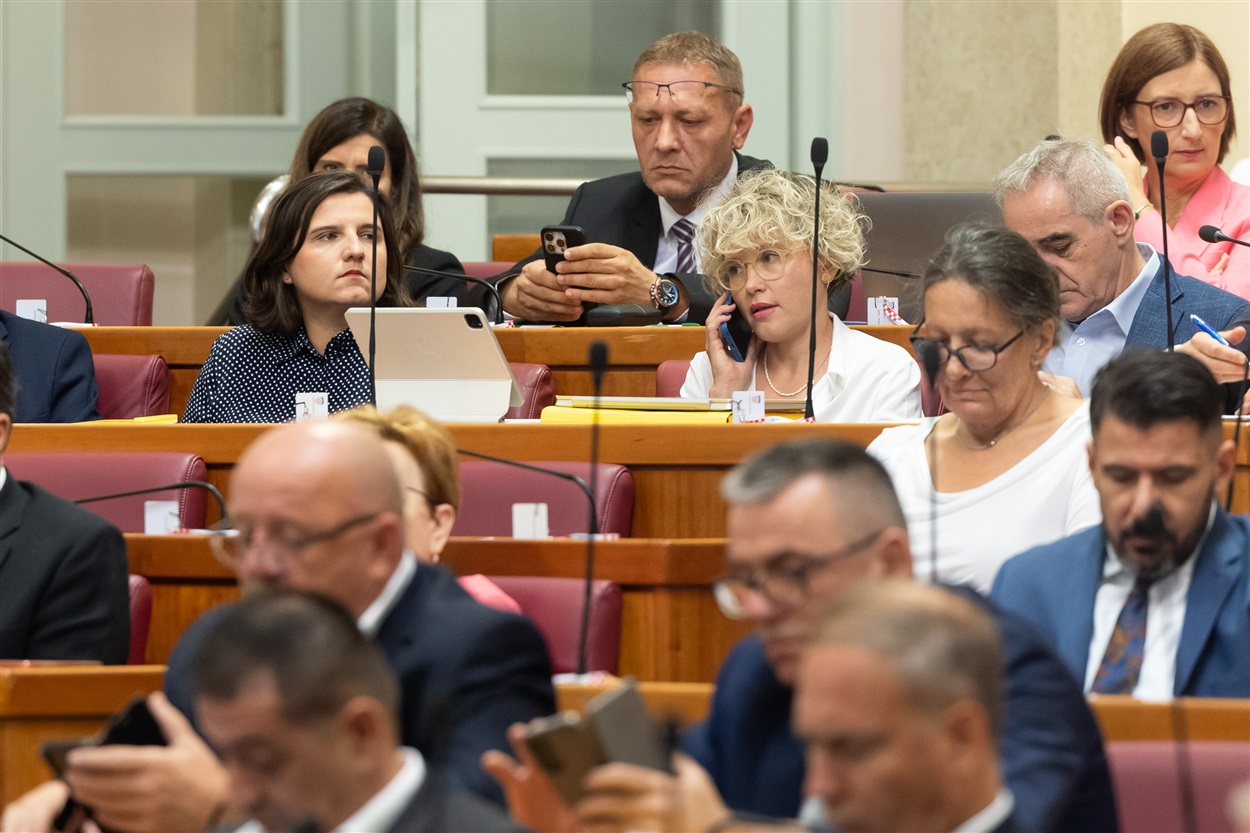
Zagreb - Croatian parliamentary opposition parties on Thursday criticised the government's proposal to amend a package of tax laws, saying that it did not take into account the high rate of inflation.
The opposition also said that the abolition of local taxes was the government's way of dealing with towns in which the Croatian Democratic Union (HDZ) was not in power. The ruling coalition rejected this, saying that it would give towns greater autonomy.
"As Mayor of Bjelovar, I have abolished local tax and absolutely nothing happened," Dario Hrebak (Croatian Social Liberal Party) said in response to the opposition's criticism of the government's plan to abolish this tax as part of the tax reform that enters into force on 1 January 2024, as a result of which wages would go up.
Marijana Puljak (Centre) said that by abolishing local tax the government is settling scores with towns that are not under HDZ rule, and that even if the mayors decided to increase income tax, those funds would not be enough to compensate for the loss of local tax revenue.
The message of these tax changes is: "the great leader is bringing you gifts and the evil mayors are going to take them away from you," Puljak said.
Dario Zurovec (Fokus) said that the towns in which Fokus is in power abolished local taxes and did not feel any effect of it. He, however, added that the distribution of the tax system should be more fair.
The opposition said that the government's proposal to amend nine tax laws was a "sham reform" aiming to "take away from the poor and give to the rich."
Since the package was unveiled in May, with the promise that wages would go up by about 17 euros, inflation ate that up already in July, Peđa Grbin (Social Democratic Party) said, calling for increasing the tax base from 4,000 to 5,000 kuna, or 680 euros.
Marija Selak Raspudić (Bridge) said that the proposed amendments completely ignored the inflation rate. She called for increasing non-taxable monthly income for the minimum inflation rate, "not by 30 but by 120 euros."
Grozdana Perić (HDZ) pointed out that since 2016, the government had done all in its power to help low-income households and pensioners and improve the business environment.
"These amendments make it possible for towns and municipalities to have greater autonomy in decision making, to take responsibility for doing business and thus become attractive or unattractive," she said.
Parliament will resume its session next Tuesday and will vote on the bills discussed on Thursday, 28 September.